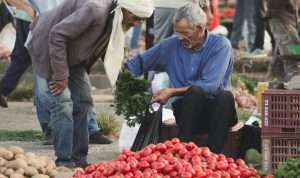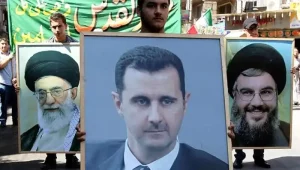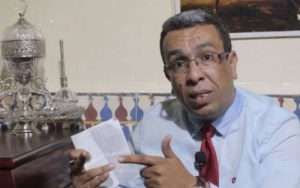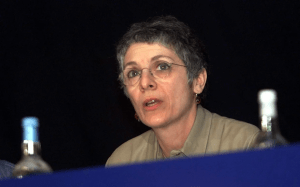Nizar Boulahiah: Has the EU dug its own grave in Morocco?

Where will this new stand against Morocco and its interpretation of human rights end? While the EU carves out a new friendship with Algeria for energy needs, experts are asking is the objective of MEPs to bring about a revolution in Morocco?
Europeans talk about human rights, but when it comes to their own interests, they don’t talk. Of course, a person like Sergey Lavrov is well aware of this, and although the Russian Foreign Minister will not likely say to his Moroccan hosts, when he arrives in a few days between them: Look what those whom you considered your European friends and partners are doing to you, he will undoubtedly seize the opportunity to extend his hand to Rabat and support.
What he considered recently at a press conference in Moscow were “long-term plans with Morocco.” It is evident that this may cause relative concern in Washington, even if it realizes its limits, but it will be considered in this particular circumstance a symbolic slap in the face of Brussels, after the European Parliament voted last Thursday, with a large majority, on a resolution calling on Rabat to “respect freedom of expression and freedom of the media” and “ Ensure a fair trial for imprisoned journalists” and “end the harassment of journalists in the country.”
Someone might say, what does this have to do with that? The answer is that the threads are the same. Did those parliamentarians expect that they would put Morocco in a narrow corner, and that they would tighten the screws on it, and make it submit quickly and easily to what they asked of it? Or were they well aware in their hearts that their pressure was futile, or feasible, and that it was like an blank firing bullet that had no luck in any case hitting its target?
READ Morocco parliament clashes with MEPs over human rights rebuke
The Moroccan openness to China and Russia, and the incursion into the African continent, the traditional stronghold of the European colonial powers, is raising concerns in Brussels.
The matter is suspicious. If the European deputies had moved on their own and inspired by their conscience, and only out of concern to give precedence to principles over interests, then what is the secret of their focus on a country like Morocco, at a time when in its surroundings and in other places outside its surroundings, more severe violations are taking place than those attributed to for him? What is the explanation for the selectivity they show when they express their feelings of concern and annoyance with the human rights situation in the southern shores of the Mediterranean, in a specific country over another? What many will say here is that there is definitely something behind it. French MP Thierry Mariani of the right-wing National Rally party (below), for example, stood up to say after the vote on that resolution: “You think we are gathering to condemn a country that violates human rights or the press, and engages in the destabilization of Africa, and that may mean that we are talking about Algeria”.

However, the European left does not condemn Algeria completely, to which we pass everything in the hope of obtaining gas, and in exchange for that we discuss Morocco, which is one of the axes of our strategic partnership in Africa. Although the Algerians may, of course, not accept such an explanation, and may see it as a kind of exaggeration, or as a blind bias towards their western neighbour, the constant is that the entry of gas is strongly on the side of the equation, especially with the continuation of the Russian war in Ukraine, and its repercussions and repercussions. directly on the European economies, which makes it understandable to exclude Algeria in this particular circumstance from any discussions or similar decisions. But was it necessary to place one of the two Maghreb countries in the crosshairs of European arrows? Are there not vital interests for Brussels with Rabat to the same extent that it also has vital interests with Algeria? It is really strange that the two Maghreb neighbours, even in two different periods, collided with one barrier. Perhaps the Algerians still remember the position of the European Parliament three years ago from now on the path that led to the presidential elections in which the current President Abdelmadjid Tebboune won, and how their foreign ministry statement at that time criticized what he described as “the European Parliament granting itself, with all brazenness and insolence, the freedom to rule over The current political course in our country, at a time when the Algerians are preparing to elect a new president of the republic in all democracy and transparency.” Those related to the parliamentary field ». It is certain that the parliamentarians who defended democracy, freedom and human rights at the time know very well what result happened in Algeria after the decision they issued in 2019 against the current Algerian political track. So what benefit is hoped for, then, from repeating the attempt again, but in the opposite direction? It is certain that the MEPs who defended democracy, freedom and human rights at the time know very well what result happened in Algeria after the decision they issued in 2019 against the current Algerian political track.
READ Hafed Al-Ghwell: Algeria & Morocco’s futile antagonism
So what benefit is hoped for, then, from repeating the attempt again, but in the opposite direction? It is certain that the parliamentarians who defended democracy, freedom and human rights at the time know very well what result happened in Algeria after the decision they issued in 2019 against the current Algerian political track. So what benefit is hoped for, then, from repeating the attempt again, but in the opposite direction?
In light of the constant tension in the Algerian-Moroccan relations, the only meaning of this is to favour and court Algeria, even with a symbolic statement of condemnation of its western neighbour. This behaviour does not reflect far-sightedness, as much as it indicates miscalculation, but what distant calculations can push the Europeans now to take that step? Does it mean that their close and deep relations with Rabat will be put to the test, and will witness a radical and broad strategic shift in the coming months? Numerous factors, such as energy files and the changes that have begun to occur within the international system as a result of the American-European conflict on the one hand, and the Russian-Chinese conflict on the other, may control a large part of the answer. However, the Europeans, who cannot, for several reasons, abandon or wash their hands of partnership with a country like Morocco, do not view with satisfaction what they may consider unacceptable Moroccan attempts to bypass the pattern they wanted for that relationship. The Moroccan openness to China and Russia, and the incursion into the African continent, the traditional stronghold of European colonial powers, is raising increasing concern among several quarters in Brussels. Also, the great breakthroughs achieved by Rabat in the Sahara file, especially in the last two years, put them in front of a real dilemma, and not only withdrew the initiative from their hands, but also revealed clear divisions in their positions and orientations. Whether the Sahara appears or not in the statements of the European Parliament and the rest of the European institutions, it remains the basic node that governs the European-Moroccan and even the European-Algerian relations. It is clear that what the Moroccan monarch said last August that “the Sahara file is the lens through which Morocco looks at the world, and it is the clear and simple criterion by which it measures the sincerity of friendships and the effectiveness of partnerships,” has aroused concern in Brussels, which is used to being alone.
Nizar Boulahiah is a Tunisian writer. This article originally appeared in the Arab language AlQuds website.
Want to chase the pulse of North Africa?
Subscribe to receive our FREE weekly PDF magazine














